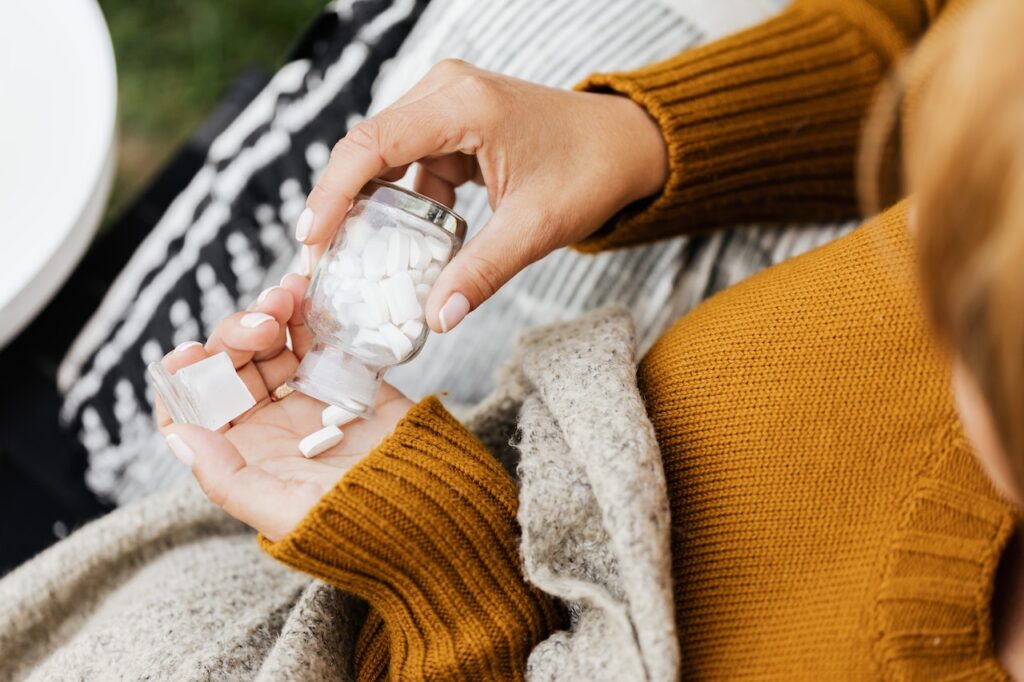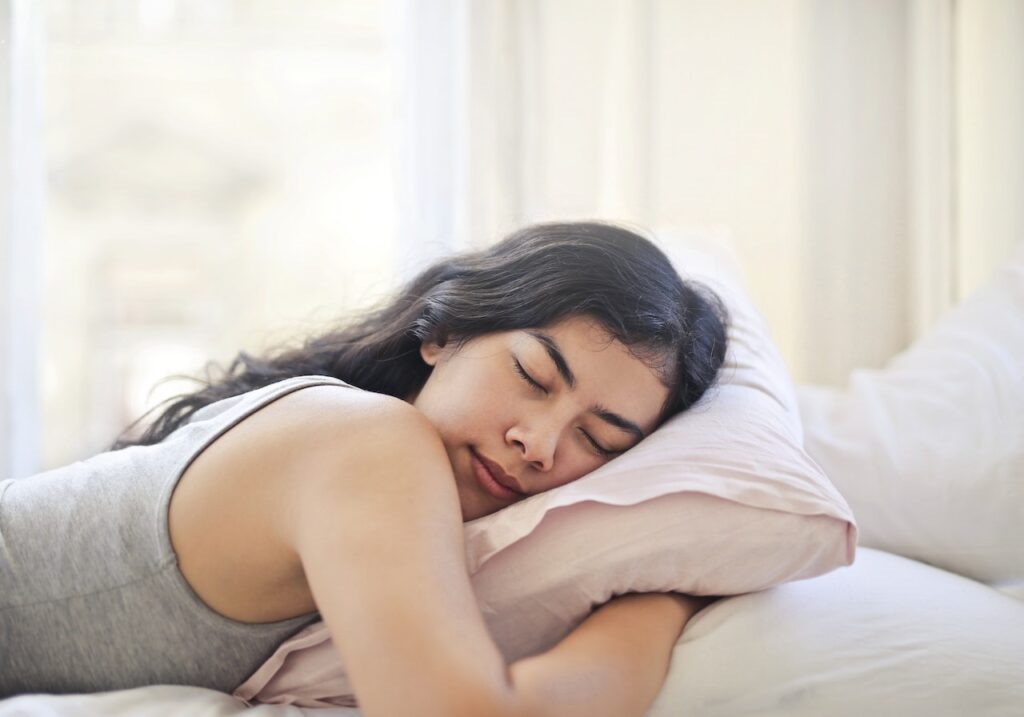
Melatonin vs. Benadryl for Sleep: Which Is the Better Choice?
Two of the most popular options for tackling insomnia are melatonin and Benadryl. Many people rely on one or both of these treatments in order to find some peace at night.
However, when it comes to melatonin vs. Benadryl for sleep, which one is the better option? Is either really better than the other? Keep reading to find out the answers to these questions and more.
How Does Melatonin Help You Sleep?
Melatonin is a hormone your body naturally produces, specifically when the lights start to get low at the end of the day. It starts producing this hormone at the end of each day and increases the level of melatonin in your body as more is produced. By the time you are ready to go to sleep, the melatonin levels in your body have risen to the point where your brain gets the message the melatonin is trying to send. This message lets your brain know it needs to sleep for the night.
A melatonin supplement provides you with additional melatonin. This can help provide the sleep signal without relying on your body to manage the process.
Related: CBD for Sleep Versus Other Sleep Aids
How Does Benadryl Help You Sleep?
Benadryl is in a class of drugs called antihistamines. These are used to treat several conditions but are primarily used to treat the symptoms of allergies.
Antihistamines prevent your body from creating histamine. This is a compound that has a variety of functions in the body and is produced naturally. However, histamine specifically plays a part in the sleep-wake cycle by promoting wakefulness when active. By blocking histamine, antihistamines prevent this wakefulness from occurring and, thus, make you sleepy.
Benadryl can also help promote sleep by providing relief from pain. If pain is keeping you up, the relief provided by Benadryl makes it easier to sleep. In this way, it is like any other pain relief method.
Melatonin vs. Benadryl: Side Effects
When it comes to the side effects, melatonin is the winner. Both substances cause drowsiness, but the other side effects of melatonin are generally far milder than the side effects of Benadryl.
Melatonin side effects include more vivid dreams, headaches, and mild stomach issues. However, these are generally only seen with large doses of melatonin.
Meanwhile, Benadryl can cause constipation, dry mouth, and blurry vision as somewhat common side effects. Less common side effects include problems urinating, problems with memory, and a lack of coordination.
Benadryl also has the potential to cause rebound insomnia. This is a case of insomnia that strikes when the user stops taking the medication they were taking to treat their insomnia. Essentially, once you’re hooked on Benadryl, it may be hard to stop taking it. Meanwhile, melatonin doesn’t seem to produce this rebound effect.
Finally, people develop a tolerance to Benadryl rather quickly. This leads many experts to not recommend it for sleep.
Looking for a way to relax? Check out our CBD Isolate Oil to help you calm down before bed.
Melatonin vs. Benadryl: Drug Interactions

Melatonin and Benadryl both interact poorly with drugs that also cause drowsiness, as doubling down on this side effect is not recommended.
In addition, both are not suggested for use alongside alcohol. Benadryl, in particular, is generally regarded as unsafe to use alongside alcohol.
Besides this, melatonin has several different drug interactions to watch out for. These include:
- Diabetes medications
- High blood pressure medications
- Anti-seizure medications
- Blood thinners
- Medications that interact with the immune system
- Caffeine
Meanwhile, drug interactions with Benadryl include:
- Opioids
- Benzodiazepines
- Anticholinergic medications
- Antidepressants
- Muscle relaxers
So, overall, there isn’t a clear winner when it comes to drug interactions. Since everyone takes different medications regularly, the option that works for one person may not work for another. Essentially, the winner in this category is whichever one has no interactions with the medications you are taking.
Related: Still Awake? Five Examples of CBD Helping People Sleep
Melatonin vs. Benadryl: Regulations
Since Benadryl is a form of medication, it is highly regulated. The FDA has approved it as a “nighttime sleep-aid” option for people 12 and older. This approval comes with regulations regarding how Benadryl is created and the dosages surrounding it.
Meanwhile, melatonin is a supplement rather than a medication. This means that the FDA does not regulate it. So, products containing or claiming to contain melatonin don’t have the same guarantees that come with an FDA-regulated product.
Overall, this means that Benadryl wins out when it comes to regulations.
Try our Full-Spectrum CBD Gummies to relax the night away!
Melatonin vs. Benadryl: Overall
There is no clear choice between melatonin or Benadryl for sleep. Different situations may require a different approach.
Melatonin is generally recommended when you are trying to adjust your sleep cycle. So, when changing the time you sleep due to jet lag, a change in your work schedule, or any other shift, melatonin is the option to go with. In addition, melatonin is better for situations when your body isn’t producing melatonin naturally, which happens for people who take beta blockers. Finally, melatonin is the better option for younger people, as Benadryl isn’t approved for anyone under 12.
Benadryl is generally considered the better option when you are dealing with a sickness or pain that is disrupting your sleep. In these situations, Benadryl will help you fall asleep faster while also helping you treat the problem preventing you from sleeping, further promoting good sleep.
However, neither option is recommended for long-term use. In addition, there are some situations that neither provide an effective solution for.
One of these situations is nighttime anxiety. For people unable to sleep due to their anxiety issues, these medicines won’t do much.

Choosing between Melatonin vs. Benadryl for Sleep
Melatonin and Benadryl both have the potential to help you sleep in distinct and different situations. Depending on which situation you are in, you may require one, the other, or even another option, like CBD. The important thing to remember is to consider which one works best for you on a personal level.
Related: Is Anxiety Genetic? Unraveling the Role of Genetics

